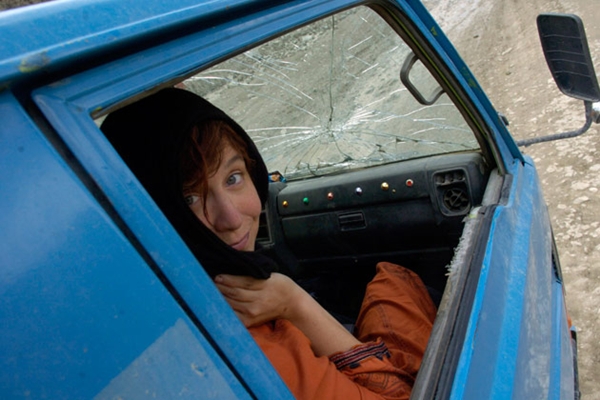Thousands of men blocked the road, surrounding the S.U.V. of the chief justice of Pakistan, a national hero for standing up to military rule. As a correspondent for The Chicago Tribune, I knew I couldn’t just watch from behind a car window. I had to get out there.
So, wearing a black headscarf and a loose, long-sleeved red tunic over jeans, I waded through the crowd and started taking notes: on the men throwing rose petals, on the men shouting that they would die for the chief justice, on the men sacrificing a goat.
And then, almost predictably, someone grabbed my buttocks. I spun around and shouted, but then it happened again, and again, until finally I caught one offender’s hand and punched him in the face. The men kept grabbing. I kept punching. At a certain point — maybe because I was creating a scene — I was invited into the chief justice’s vehicle.
At the time, in June 2007, I saw this as just one of the realities of covering the news in Pakistan. I didn’t complain to my bosses. To do so would only make me seem weak. Instead, I made a joke out of it and turned the experience into a positive one: See, being a woman helped me gain access to the chief justice.
And really, I was lucky. A few gropes, a misplaced hand, an unwanted advance — those are easily dismissed. I knew other female correspondents who weren’t so lucky, those who were molested in their hotel rooms, or partly stripped by mobs. But I can’t ever remember sitting down with my female peers and talking about what had happened, except to make dark jokes, because such stories would make us seem different from the male correspondents, more vulnerable. I would never tell my bosses for fear that they might keep me at home the next time something major happened.
I was hardly alone in keeping quiet. The Committee to Protect Journalists may be able to say that 44 journalists from around the world were killed last year because of their work, but the group doesn’t keep data on sexual assault and rape. Most journalists just don’t report it.
The CBS correspondent Lara Logan has broken that code of silence. She has covered some of the most dangerous stories in the world, and done a lot of brave things in her career. But her decision to go public earlier this week with her attack by a mob in Tahrir Square in Cairo was by far the bravest. Hospitalized for days, she is still recuperating from the attack, described by CBS as a brutal and sustained sexual assault and beating.
Several commentators have suggested that Ms. Logan was somehow at fault: because she’s pretty; because she decided to go into the crowd; because she’s a war junkie. This wasn’t her fault. It was the mob’s fault. This attack also had nothing to do with Islam. Sexual violence has always been a tool of war. Female reporters sometimes are just convenient.
In the coming weeks, I fear that the conclusions drawn from Ms. Logan’s experience will be less reactionary but somehow darker, that there will be suggestions that female correspondents should not be sent into dangerous situations. It’s possible that bosses will make unconscious decisions to send men instead, just in case. Sure, men can be victims, too — on Wednesday a mob beat up a male ABC reporter in Bahrain, and a few male journalists have told of being sodomized by captors — but the publicity around Ms. Logan’s attack could make editors think, “Why take the risk?” That would be the wrong lesson. Women can cover the fighting just as well as men, depending on their courage.
More important, they also do a pretty good job of covering what it’s like to live in a war, not just die in one. Without female correspondents in war zones, the experiences of women there may be only a rumor.
Look at the articles about women who set themselves on fire in Afghanistan to protest their arranged marriages, or about girls being maimed by fundamentalists, about child marriage in India, about rape in Congo and Haiti. Female journalists often tell those stories in the most compelling ways, because abused women are sometimes more comfortable talking to them. And those stories are at least as important as accounts of battles.
There is an added benefit. Ms. Logan is a minor celebrity, one of the highest-profile women to acknowledge being sexually assaulted. Although she has reported from the front lines, the lesson she is now giving young women is probably her most profound: It’s not your fault. And there’s no shame in telling it like it is.
Creative Commons license
This article was first published by ProPublica on Feb. 19, 2011. It was co-published in the New York Times. Republished here according to the Creative Commons license by-nc-nd. See ProPublica for details on republishing terms.


[…] This post was mentioned on Twitter by Vox Publica, Vox Publica. Vox Publica said: Lara Logan bryter taushet om trakassering av kvinnelige urix-journalister, skriver Kim Barker: http://bit.ly/g3Q1QA #egypt #propublica […]